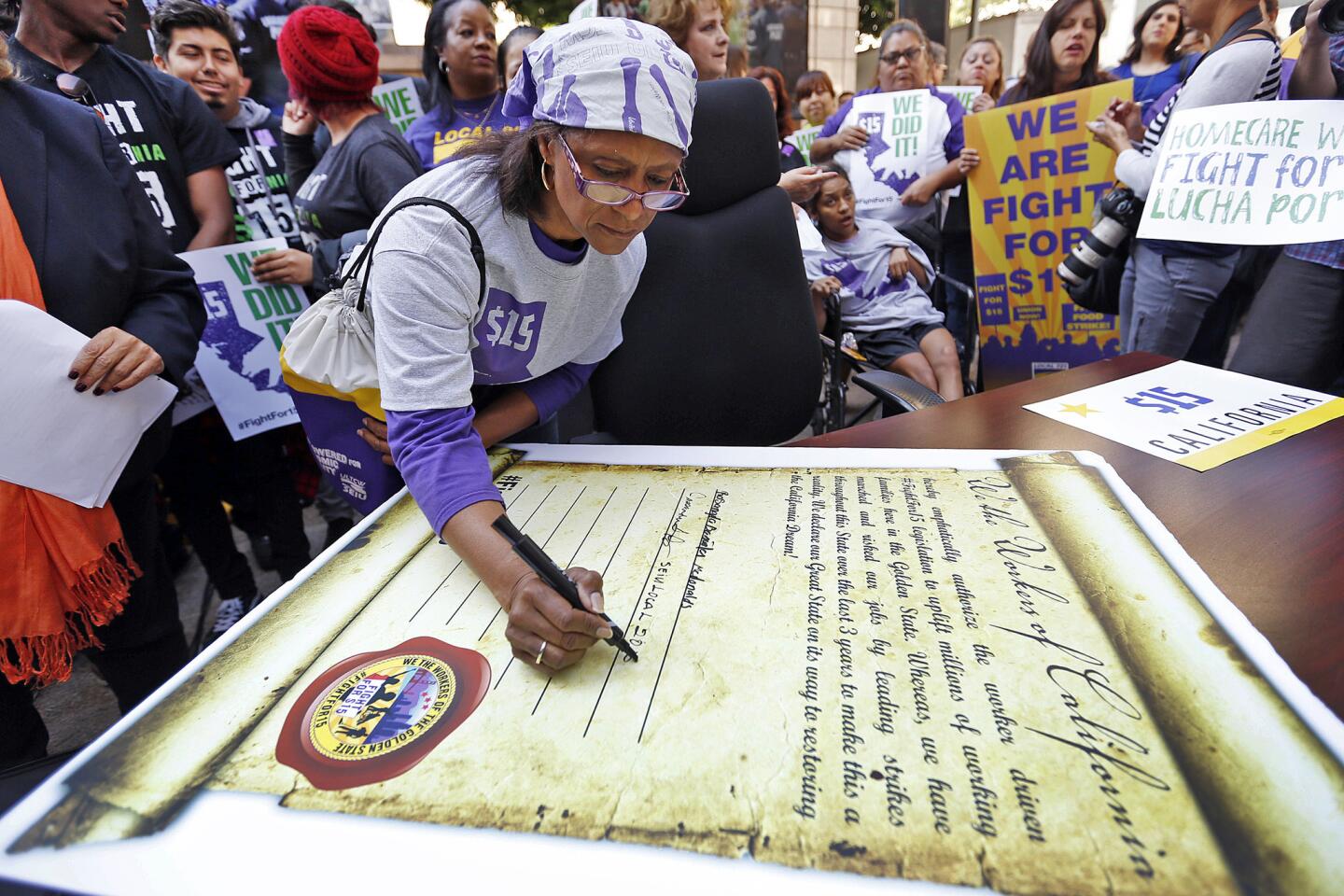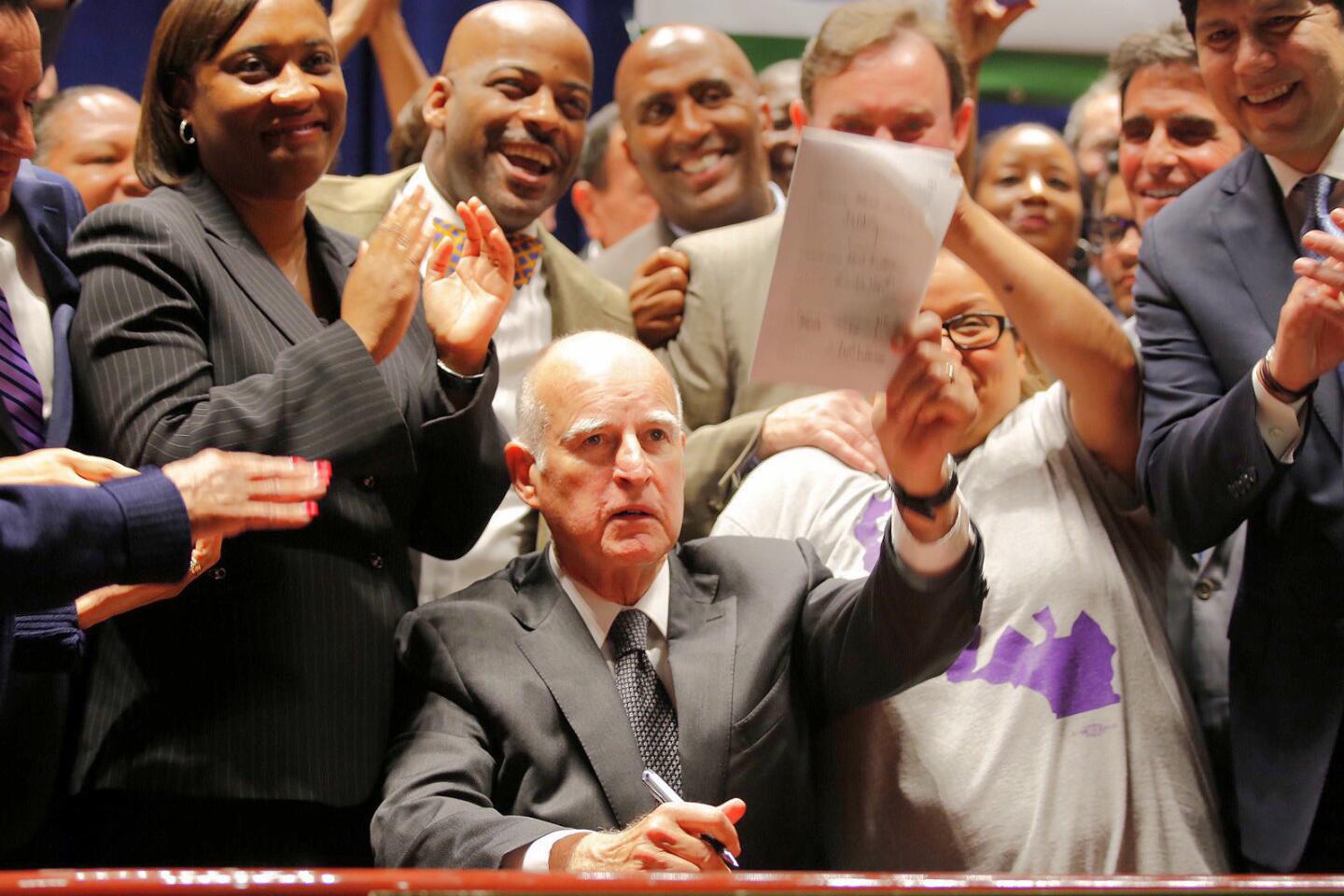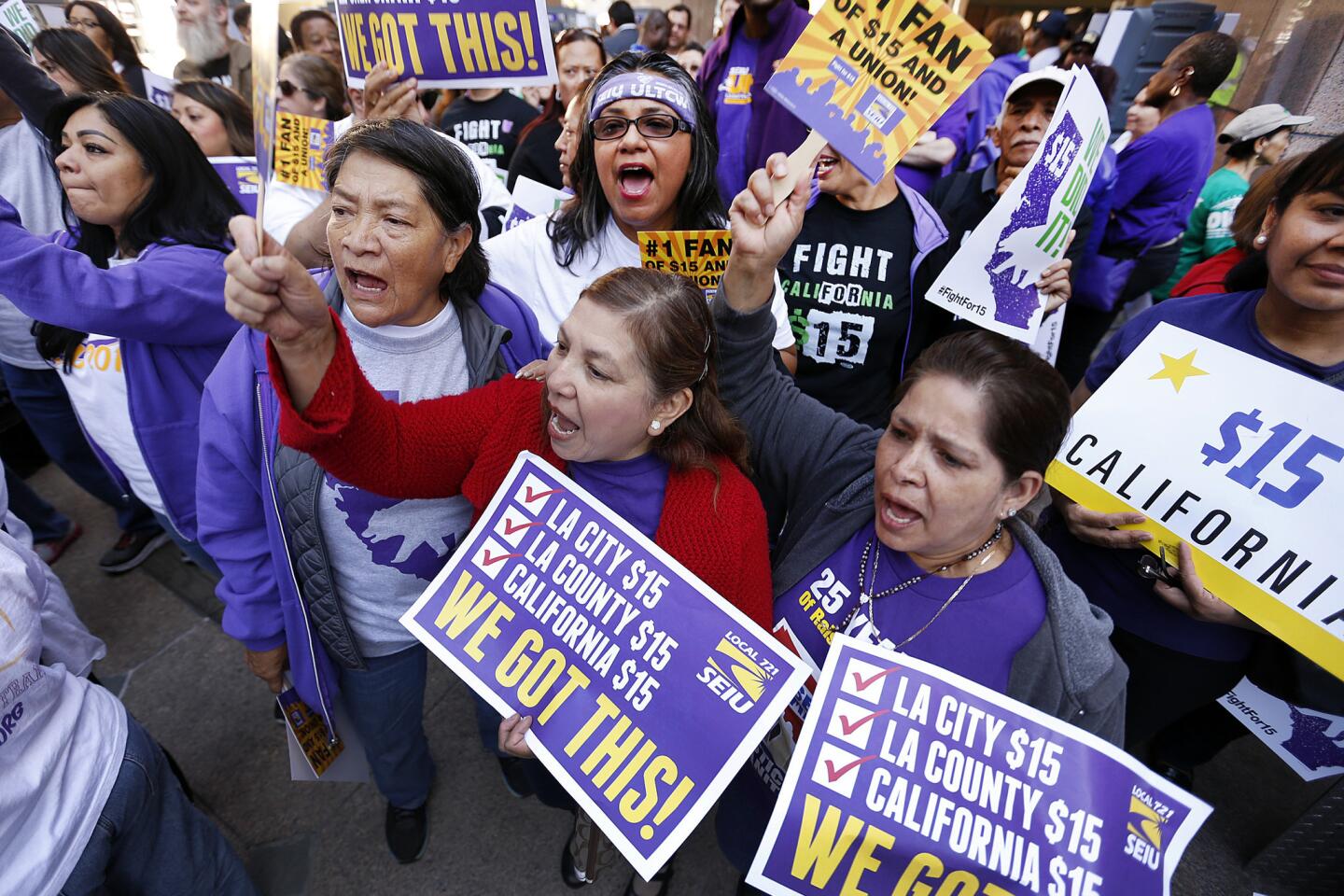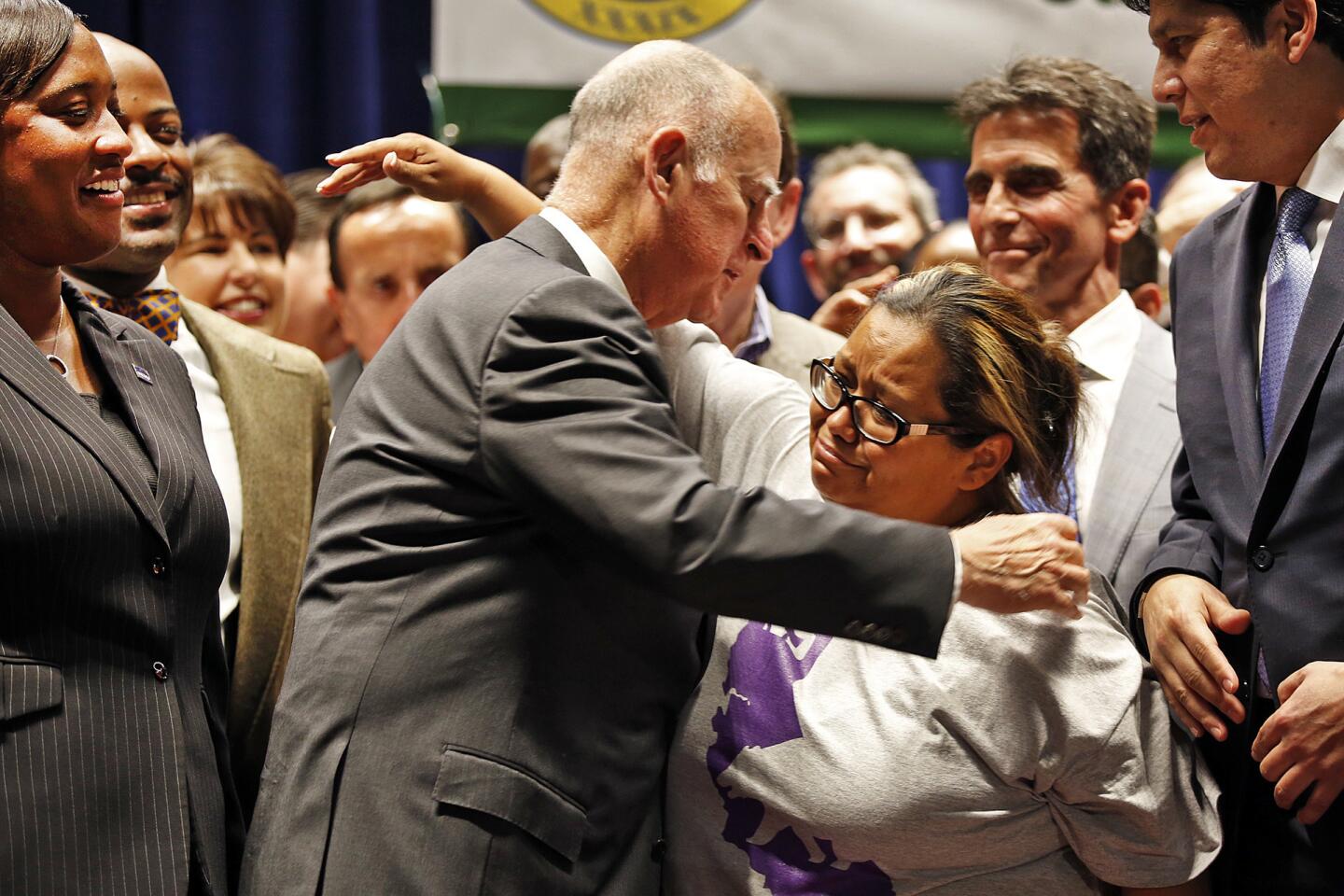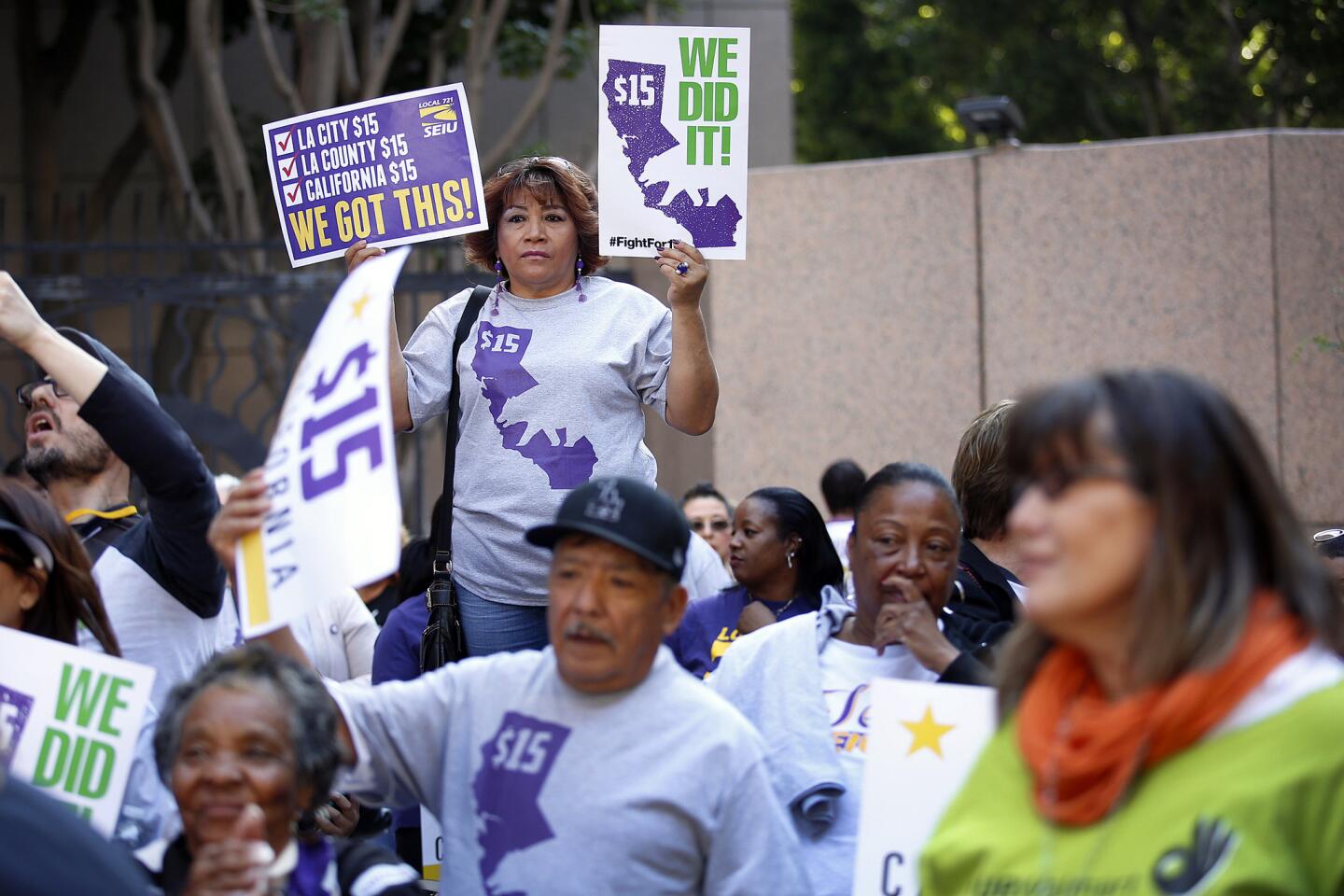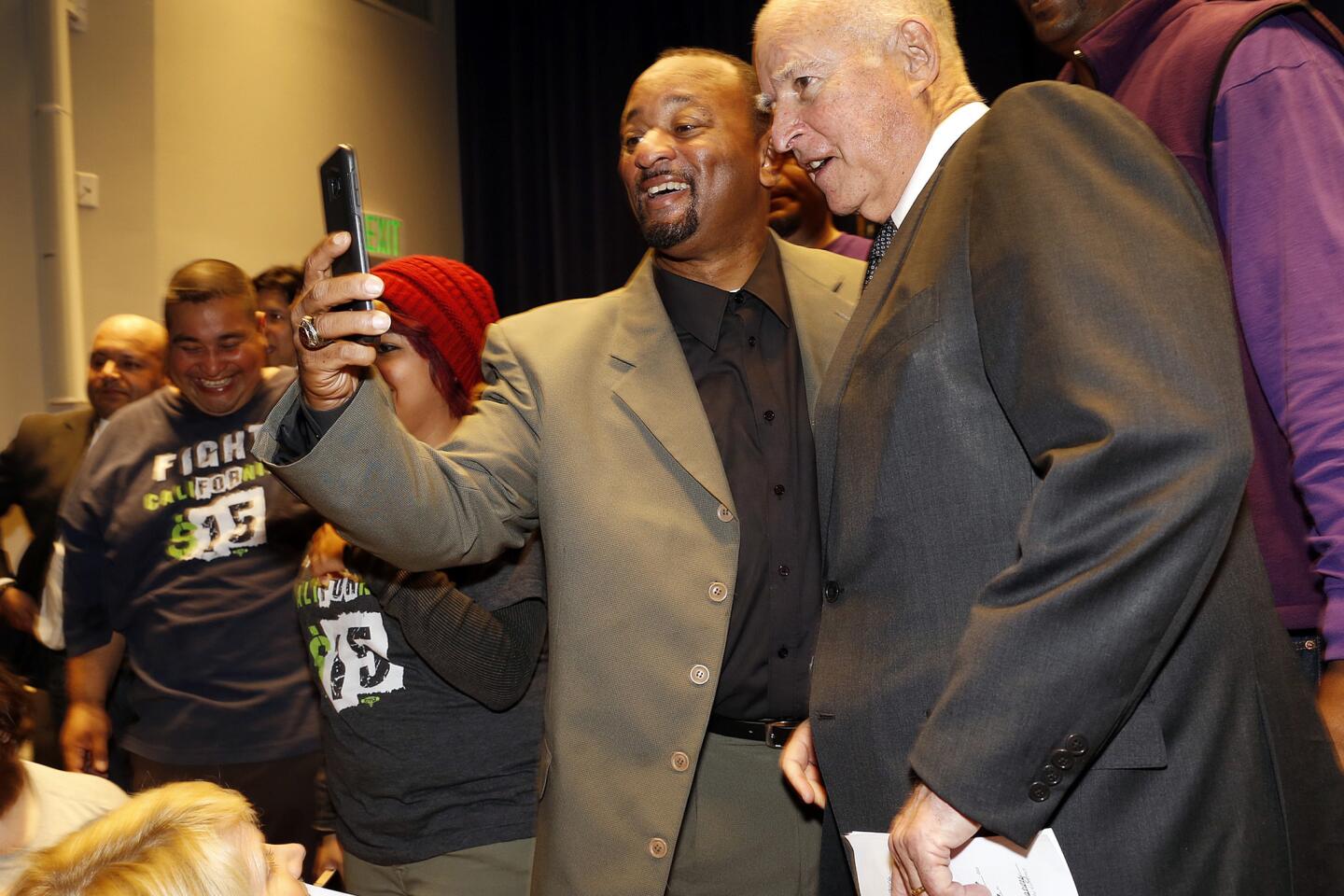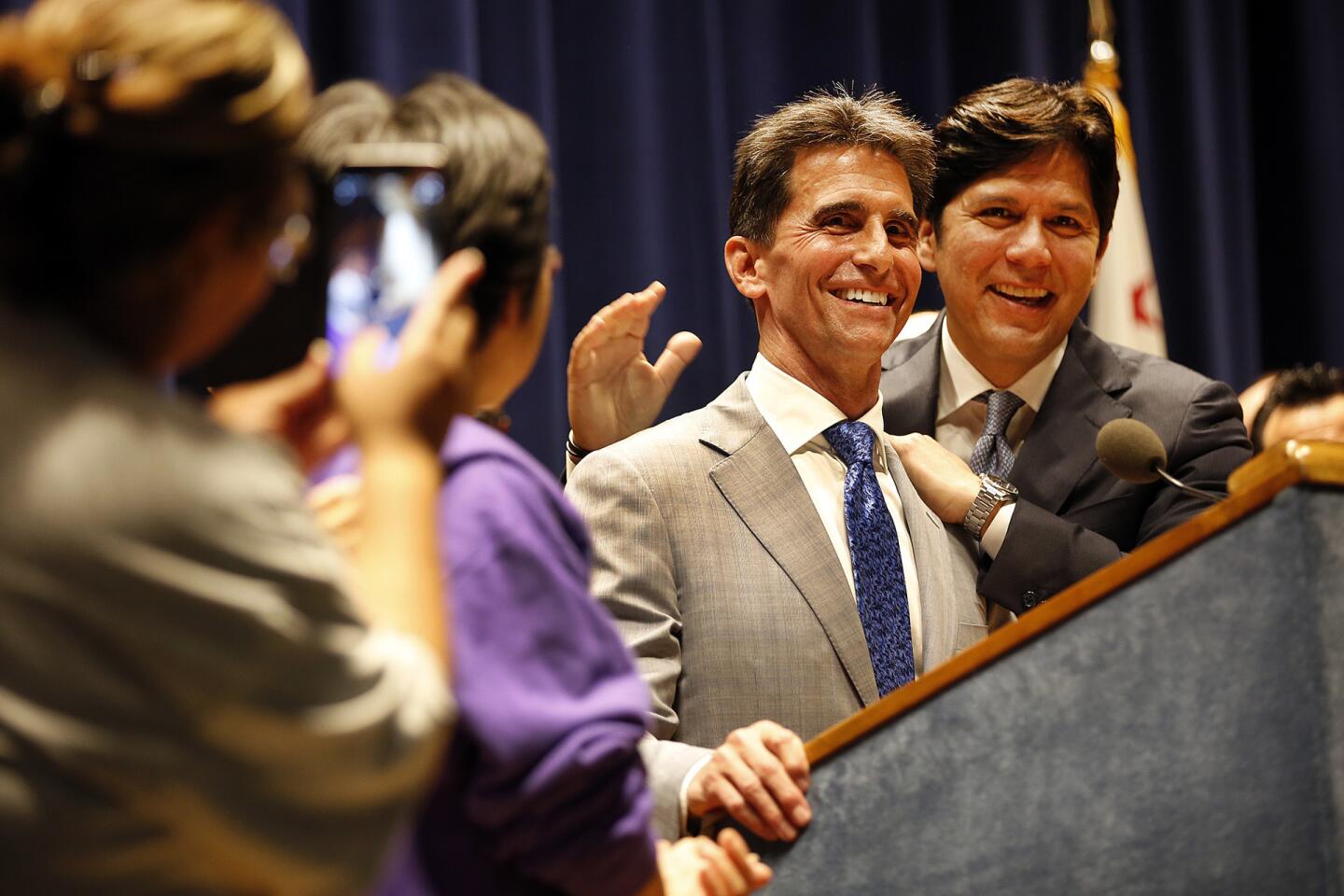California now has highest minimum wage in the country (Just don’t tell New York)
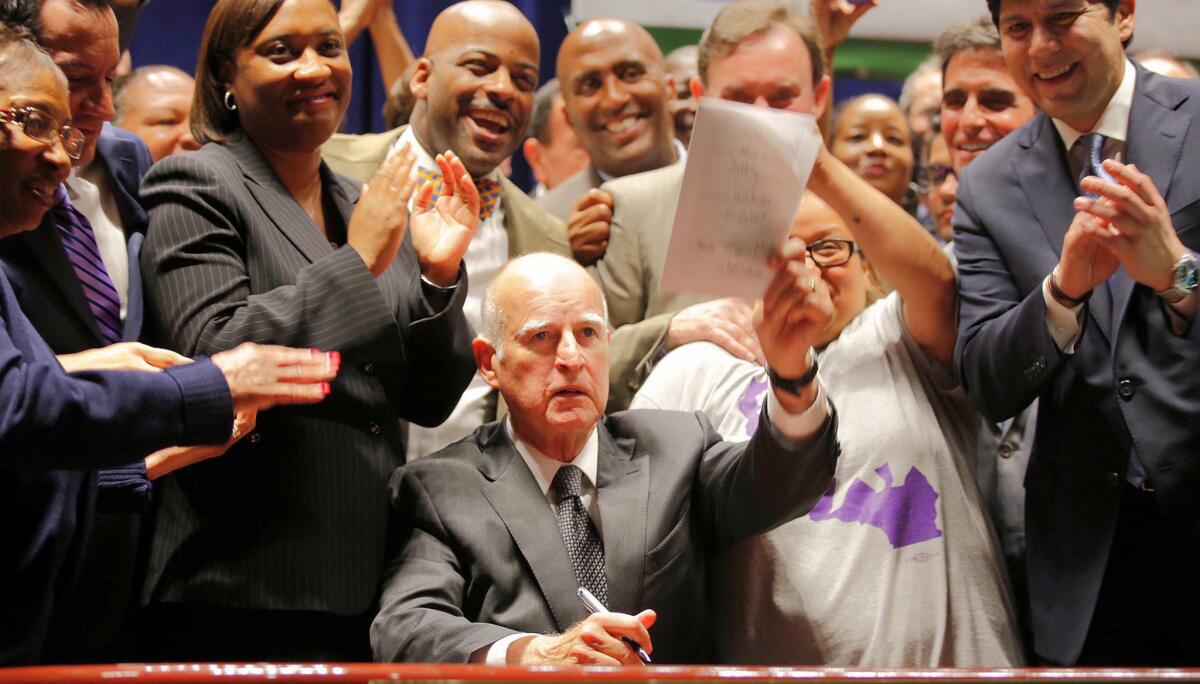
California Gov. Jerry Brown holds a signed copy of the minimum wage bill, which will raise the wage to $15 an hour by 2022.
Anyone unconvinced about a New York-California rivalry had some tough evidence to overcome Monday, as both states moved to enact minimum wage hikes to $15 an hour, the highest in the country, within hours of one another.
About the same time as California’s sweeping new minimum wage was being signed into law Monday, Hillary Clinton was taking the stage with New York Gov. Andrew Cuomo, celebrating that state’s freshly minted law, one Cuomo proudly touted as a “first in the nation.”
But to California’s beaming Democratic leaders and the crowd of labor union supporters behind them in a downtown Los Angeles conference room, none of that mattered.
“This is the work of many hands, and many minds and many hearts,” said Gov. Jerry Brown, flanked by state lawmakers and dozens of union supporters. “This is about economic justice, it’s about people, it’s about creating a little, tiny balance in a system that every day becomes more unbalanced.”
Cheers and chants of “Sí, se pudo!” — or “Yes, we could!” nearly drowned out the microphones.
“When it comes to taking care of working families,” said Senate President Pro Tem Kevin de León (D-Los Angeles), “mark my words, California leads the nation.”
California’s law, which is expected to benefit millions of workers, will raise the base wage over the next six years, reaching $15 an hour by 2022.
“Ours is more progressive, and ours is a smarter way to go about it,” De León said after Brown signed the bill into law. “We don’t look towards New York for any leadership; I think the rest of the country looks toward California for leadership on this issue.”
De León noted that New York’s law leaves room for wage differences across regions. Workers in New York City, for example, will reach $15 an hour by the end of 2018, but it’s unclear when all workers in New York state will reach the same level. Workers in the Central Valley, San Bernardino and other areas struggling to rebound their economies “deserve a minimum wage increase, too,” De Leon said.
Opponents of California’s wage deal have been suggesting that a regional approach would be wiser and that doing a statewide increase will hurt the economy.
Brown’s signature came just one week after he announced an official deal that had been negotiated behind the scenes with legislative and labor leaders. Both houses of the Legislature easily passed the measure, which Brown called a “matter of economic justice.” All of the Republicans voted against the increase, and two Assembly Democrats opposed it.
Shortly before signing the measure Monday, Brown acknowledged the role that two separate labor-sponsored ballot initiatives played in expediting the debate.
The competing measures, which would have increased the minimum wage more rapidly and did not include year-long “pauses” built in to the new law in case of an economic downturn, “gave a real thrust,” Brown said. “Without that, we probably wouldn’t be here today.”
In a nod to the role the $15 an hour minimum wage has played in the presidential election, Brown spoke of the “anger” being displayed on the campaign trail.
“One of the sources, certainly, is the way the average American is being treated by this particular economy,” Brown said. “Economics is about dollars and cents, it’s very mechanical, it’s rather heartless. Justice is about giving people their due.”
In New York, Clinton, who is facing a crucial primary there in two weeks, said the wage hike was “a result of what is best about New York and what is best about America.”
Vermont Sen. Bernie Sanders, campaigning in Wisconsin, issued a statement promising to fight for a federal $15 minimum wage and paid family leave.
President Obama hailed both states — but his statement about New York’s increase came hours before his remarks about California’s.
Asked after the signing about the impact California’s actions are having on the national discussion, De León, a Clinton supporter, said, “We’re not talking about theoretical stuff…. What Bernie Sanders is talking about, we’re doing it, and Bernie Sanders should follow what California does.”

Gov. Jerry Brown today signed into law a measure increasing California’s minimum wage to $15 a hour over the next six years.
The bulk of the impact is expected to hit Los Angeles, where labor organizations still wield considerable power. It’s also where, according to the UC Berkeley Labor Center, 1.9 million workers will benefit, either through the lifting of the wage floor or through a “ripple effect” of rising wages.
Sen. Mark Leno (D-San Francisco), who authored the bill and has fought for years for a minimum wage increase, says the law is only a starting point and that he expects cities like San Francisco and Los Angeles to enact further increases over the next few years. By 2022, says Leno, a $15 an hour wage adjusted for inflation is expected to leave a family of three hovering near the federal poverty line, which doesn’t take into account California’s higher cost of living and essential expenses like child care.
Addressing the crowd Monday, De León, the state’s first Latino Senate president, spoke about strawberry pickers in Ventura County, janitors in Riverside, dishwashers and line cooks and housekeepers all over the state who would benefit. Then he switched to Spanish to talk about “el sueño Americano” — the American Dream.
California has always kept those workers top of mind, De León said.
And, as far as he is concerned, “California is the first in the nation, period.”
For more on California politics, follow me @cmaiduc
Times staff writers Liam Dillon and Patrick McGreevy contributed to this story from Sacramento, and Michael Memoli contributed from New York.
ALSO:
On a big day for minimum-wage laws, Hillary Clinton, not Bernie Sanders, grabs the spotlight
Legislature approves minimum wage deal, sends bill to Gov. Brown
How California’s Legislature voted: Did your lawmaker support raising the minimum wage?
Timeline of minimum wage increases in California
Who wins with a $15 minimum wage?
Your voices: How would a minimum wage impact you?
Updates from Sacramento and California politics
More to Read
Get the L.A. Times Politics newsletter
Deeply reported insights into legislation, politics and policy from Sacramento, Washington and beyond. In your inbox three times per week.
You may occasionally receive promotional content from the Los Angeles Times.
